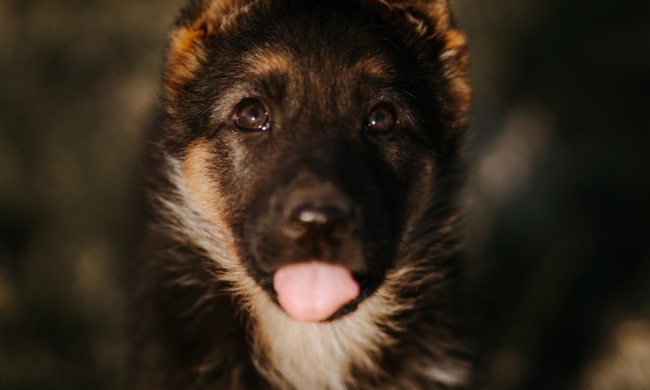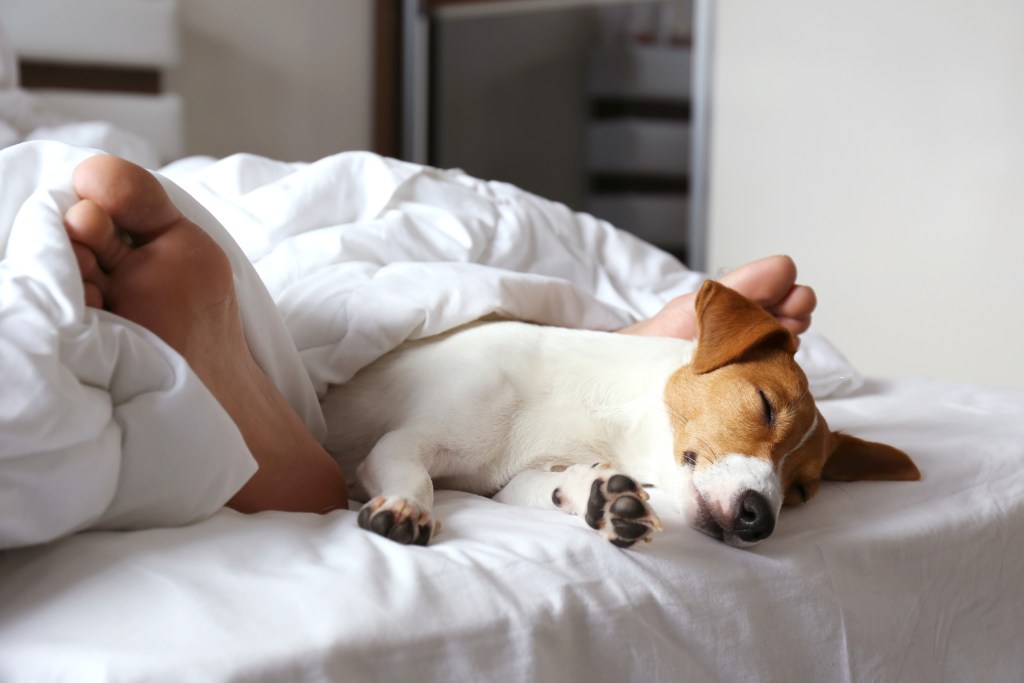
It’s hard not to love watching your puppy sleep. In fact, they might somehow manage to get cuter as they snooze. They look so content and peaceful, especially if they’re snuggled up to you. Though experts frequently recommend giving your pet their own sleep space, like a crate, it’s ultimately up to you. Regardless of where and when your puppy is sleeping, you want them to be comfortable and safe. If you notice your puppy breathing fast while sleeping, you may get worried. Should you be? It depends.
- Different puppy sleeping patterns
- What is a healthy breathing rate? How can I find out how fast my pet is breathing?
- What does it mean if my puppy’s breathing rate is too high? Should I call a vet?
- When should I worry about my puppy breathing fast?
- Final thoughts on puppies breathing fast while sleeping
Here’s what experts want you to know about labored breathing during sleep and when to call a vet.
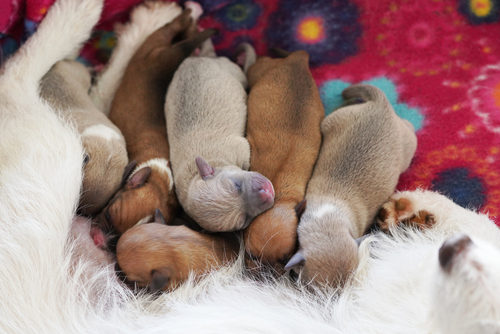
Different puppy sleeping patterns
Before we get into breathing patterns, it could help to have some knowledge of puppy sleeping patterns. They’re similar to ours, though puppies cycle through them more quickly than humans. A puppy may experience 20 sleep cycles nightly. Humans typically go through about four or five cycles. These are the phases.
- Non-rapid eye movement (NREM). Though your dog’s heart rate and blood pressure will drop, your dog will wake easily if something startles them. This phase often lasts about 10 minutes.
- Rapid eye movement (REM). Breathing increases during this phase of deep sleep, especially if your pup is dreaming (yes, dogs dream).
Your dog will run through these cycles. So, it’s possible your pup is simply only breathing fast because they’re in REM sleep — completely normal. There may be other reasons, too.
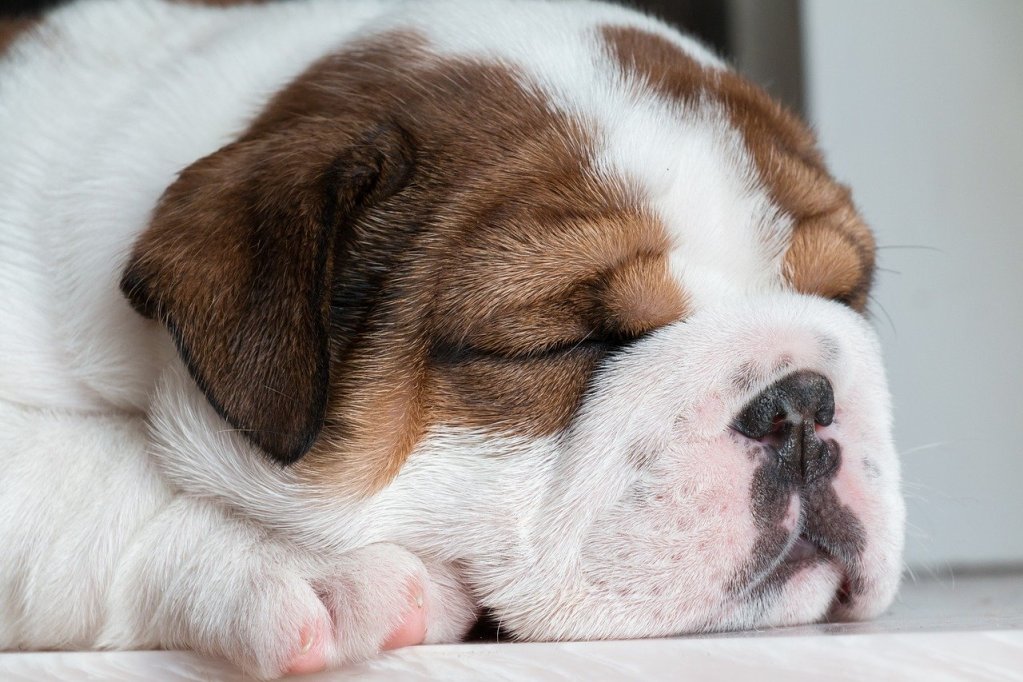
What is a healthy breathing rate? How can I find out how fast my pet is breathing?
Generally, a puppy’s breathing rate while resting should be between 10 and 35 breaths per minute. However, vets say some dogs have lower thresholds. It’s important to consult with your vet about what breathing rate is healthiest for your specific pup.
It’s actually best to evaluate your pet’s breathing rate while they are sleeping because exercise and play can elevate it. To calculate your pet’s sleep breathing rate:
- Set a timer for 30 seconds.
- Watch as your pet’s chest rises and falls. That’s a sign they are inhaling and exhaling.
- Count the breaths. One breath equals one rise and fall of your puppy’s chest.
- Repeat for 30 seconds.
- Multiply the number of breaths by 2. That’s your pet’s breathing rate.
If multiplication isn’t your jam, set the timer for 60 seconds and count the number of breaths for a full minute.

What does it mean if my puppy’s breathing rate is too high? Should I call a vet?
Several factors can trigger fast breathing during sleep. Your vet is your best resource when it comes to figuring out why your puppy’s breathing rate is elevated, but these are some common causes.
Exertion
Best-case scenario: Your pup is still cooling down from a rousing play session or exercise. Since dogs don’t sweat, they need to breathe rapidly to cool down and regulate their body temperature. If you took your puppy out for a game of fetch or went on a power walk together, they may still be breathing heavily as they nap it off.
Temperature
Again, dogs “sweat” by breathing quickly. If it’s a hot day or you have the heat on high, your pup may breathe quickly while napping. You don’t want your puppy to overheat, though. Heatstroke is dangerous for dogs, just like for humans. Turn down the heat or move your puppy to a cooler space, preferably inside, on a hot day. Make sure they have plenty of water.
Food poisoning
If your puppy got into something they should not have, like garlic or onions, they might breathe heavily. You’ll want to call poison control or your vet ASAP if you know your dog has eaten toxic food, as food poisoning can be fatal.
Trachea problems
The trachea is a dog’s windpipe. If it collapses or has too much pressure, your puppy may start breathing more heavily. A tracheal collapse can make it harder for air to make its way into your pup’s lungs. Other symptoms of this issue include a dry cough. This problem typically occurs in older dogs, but puppies can have issues too. Certain breeds, like chihuahuas, are more susceptible to tracheal collapses.
Heart issues
Heavy breathing can be a sign of heart disease. If your dog is diagnosed with ticker trouble, the vet may have you monitor their resting breathing rate more often.
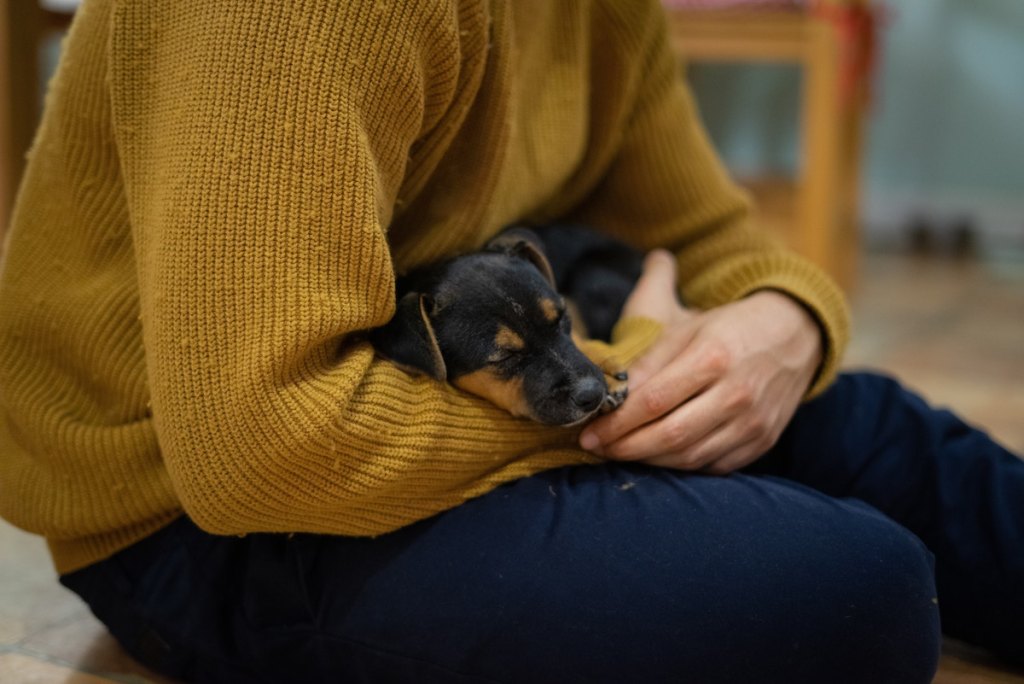
When should I worry about my puppy breathing fast?
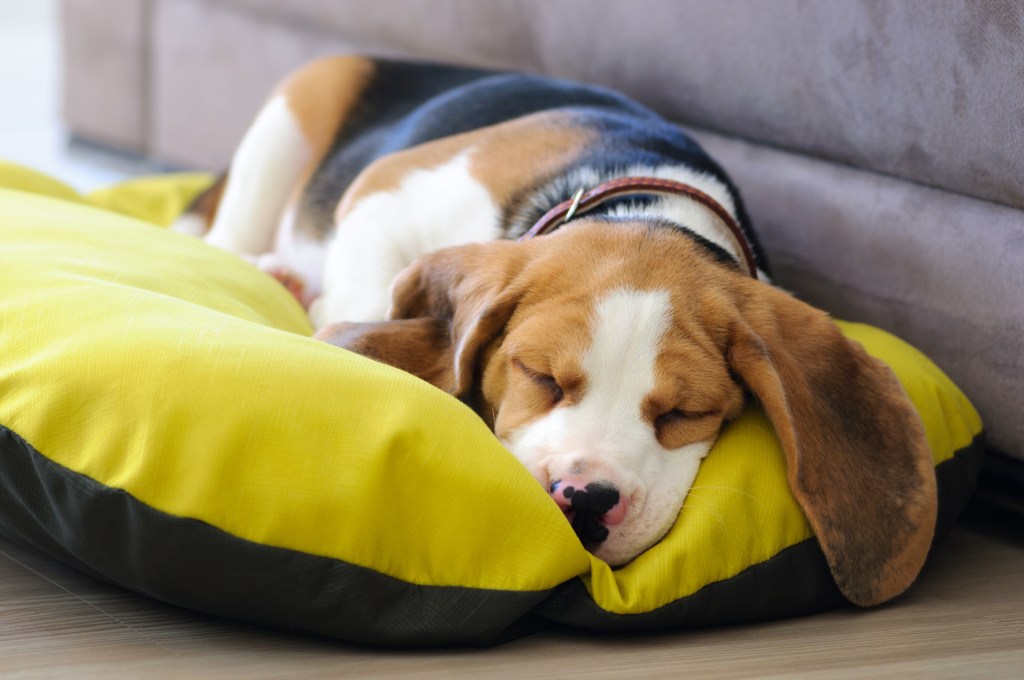
Final thoughts on puppies breathing fast while sleeping
Naturally, it’s concerning to notice your puppy breathing fast while sleeping. First, you’ll want to determine if they are actually breathing quickly by calculating their breaths per minute. Simply count each breath, which is considered one inhale and exhale, for 30 or 60 seconds. If counting for 30 seconds, multiply the number of breaths by 2. Generally, anything over 30 to 35 breaths per minute is cause for concern.
Puppies may breathe rapidly when sleeping if they have recently played or exercised or are too hot. Fast breathing during rest periods can also be a sign of something more serious, such as food poisoning or heart disease. Make sure to keep your dog out of the heat and ensure they always have plenty of water. Call your vet if you notice fast breathing while sleeping. They can advise you on the next steps and evaluate your pup to determine if treatment is necessary.

